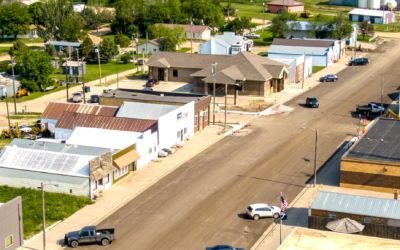Local Broadcasters Charge Fees
All Golden West cable TV subscribers have access to local broadcast stations affiliated with ABC, CBS, Fox and NBC for which monthly fees will soon increase.
“These stations provide information our customers want such as local news and weather,” says Golden West General Manager and CEO Denny Law. “Yet without Golden West’s video service, many customers would not have access to one or more of the major networks even with an antenna due to their distance from the broadcaster’s transmitter.”
To continue providing these stations to video subscribers, federal regulations require Golden West to renew retransmission consent carriage agreements with each local broadcast station every three years. Golden West is currently renegotiating with three of the four affiliate broadcasters in South Dakota as current agreements expire in December. Previous retransmission consent renegotiations have resulted in substantial monthly rate increases for subscribers.
Just as it passes signals from stations to viewers, Golden West also passes retransmission consent fees from affiliate broadcasters to subscribers. All fees paid go directly to the broadcasters. Golden West does not keep any portion of the retransmission consent fees paid by subscribers.
When did the fees start?
Affiliate broadcast stations first charged for retransmitting their signal to cable or satellite television customers in 2009. During each subsequent renegotiation, local affiliate stations have demanded a large fee increase per subscriber to continue offering their channel. At the same time, these stations still offer programming over the air for free to viewers who can receive their signal via an antenna. Unfortunately, most broadcaster’s off-air signals do not cover large portions of rural South Dakota.
Besides increasing fees for their network channel, broadcast affiliates also require providers to distribute and pay for additional channels, such as the CW, MyTV and many others, for an extra monthly fee as part of retransmission consent. Agreements mandate these channels are distributed to all customers, as well, which rules out options for a la carte programming.
Retransmission consent fees appear on a customer’s bill under “Other Charges” as “Local Broadcast Retransmission Fee.” Because Golden West negotiates with local affiliate stations in each market separately, fees vary by location.
Historic increases
“Over the past 15 years broadcasters have demanded higher retransmission consent fees for their programming, and cable companies have had little choice but to pay up,” says Consumer Reports in an October 2019 report.
Affiliate broadcasters hold the upper hand during negotiations for retransmission consent. If Golden West doesn’t agree to their significant rate increases and demands to carry additional programming, each broadcaster can force the removal of their channel from Golden West’s lineup, leaving viewers in the dark. Until regulations change, or the affiliate broadcasters stop the substantial increases, customers will likely see increasing retransmission fees on their cable TV bills.



